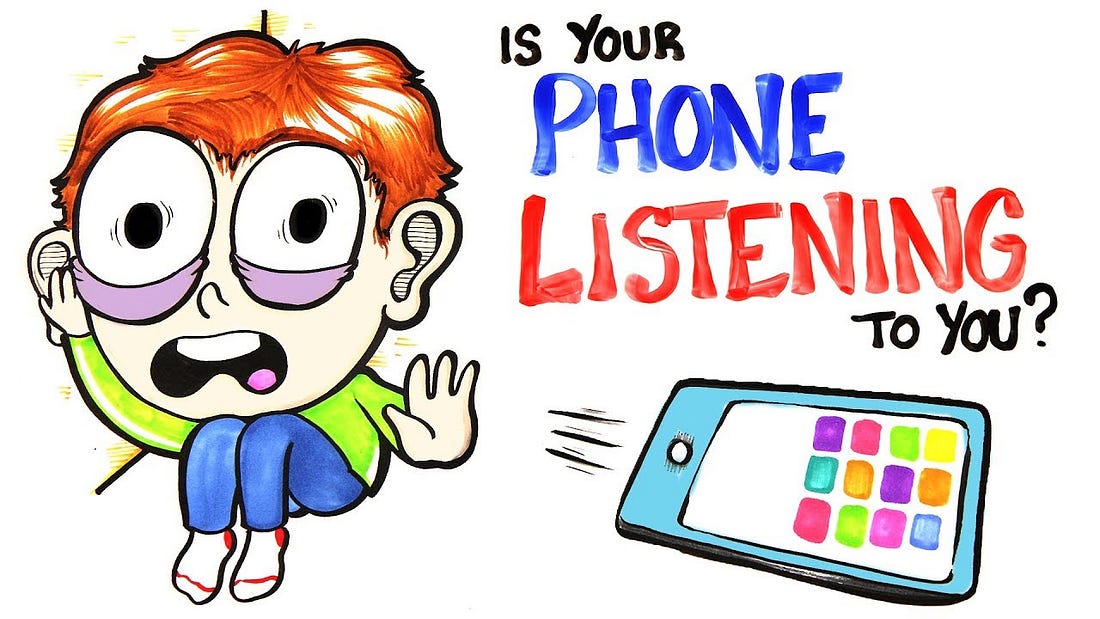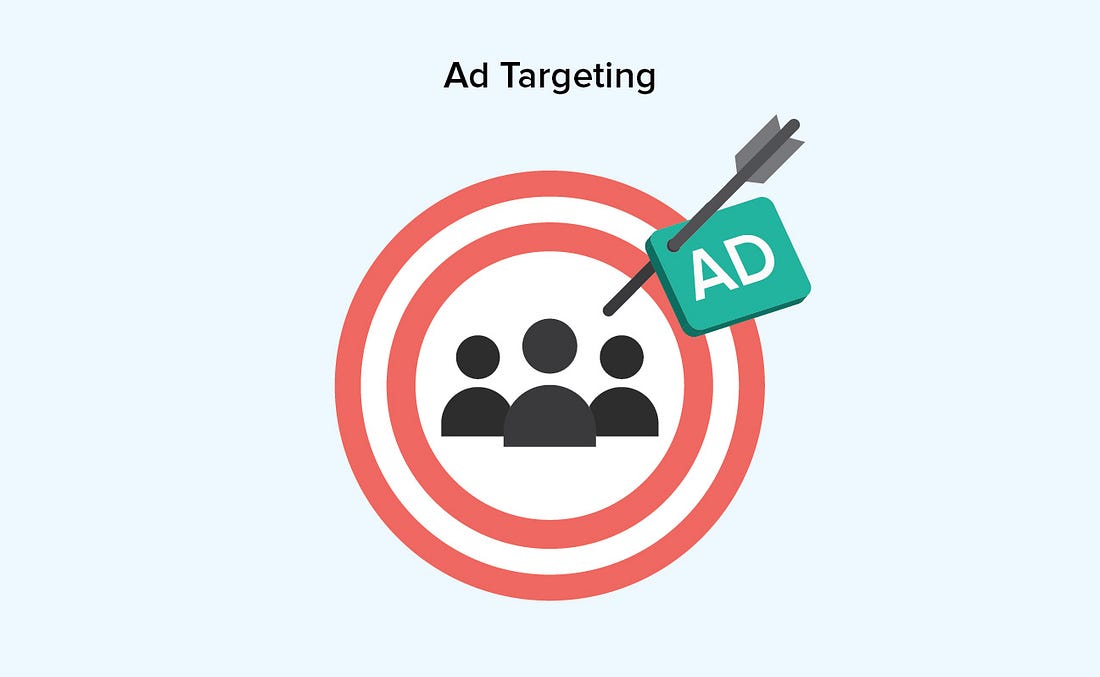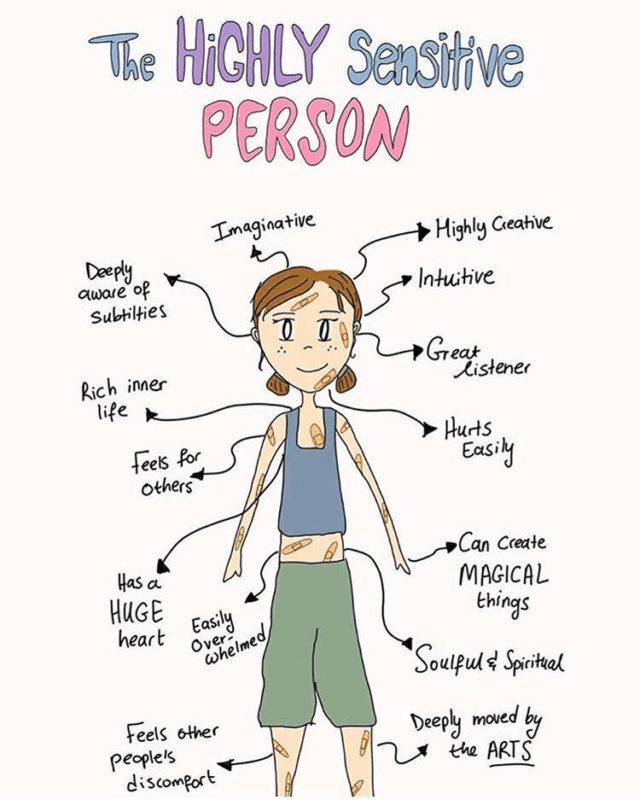Is Your Phone Listening to You? The Truth Behind Targeted Ads
Have you ever felt like your phone might be listening to you? You casually mention a product in conversation, and moments later, you see an ad for it. It feels like more than just a coincidence. But before you jump to some hilarious conclusions, let’s dive into what’s happening behind the scenes.

Have you ever talked about a random product, only to find an ad for that item on your phone moments later? Is it coincidence, or is Big Tech eavesdropping on your every word? The answer might surprise you.

Imagine this scenario: Chatting with a friend about how much you miss the beach, the sun on your face, and the sound of waves crashing. Suddenly, you pick up your phone, and there it is — an ad for the perfect beach vacation, complete with a discount code that feels almost too good to be true. It’s as if your phone is reading your mind. Or worse, listening to your every word.
But let’s put on our investigator hats and dig deeper into this mystery. Are our smartphones snooping on us, or is something else at play here?
The Reality of Targeted Ads Understanding the Mechanism
First, let’s clarify: No, your phone is (probably) not listening to your conversations — at least, not in the way you think.
According to experts, the idea that your phone constantly records your conversations and uses that data to serve ads is a myth. Apple and Google, the two major players in the smartphone world, have denied that their devices are capable of such widespread surveillance. They assert that their devices only listen for specific trigger words — like “Hey Siri” or “Okay Google” — and that all other audio data is either discarded or not collected in the first place.
So, if your phone isn’t listening, why do your ads sometimes seem way too relevant?
The Power of Data and Algorithms: Understanding the Process
Here’s where the real magic happens: data. Your phone and the apps you use collect immense information about you. From your browsing history to your location, purchase behavior, and even how long you linger on a particular post, this data is aggregated, analyzed, and used to create a detailed profile of your preferences.

Algorithms don’t need to listen to your conversations to predict what you might be interested in. They need enough data points, and they can make educated guesses that feel eerily accurate. That is what we call predictive analytics. It’s the same technology that Netflix uses to recommend your next binge-worthy series or that Spotify uses to create your perfect playlist. In other words, it’s not black magic — it’s just ideal math.
But there’s more. Sometimes, it’s just your mind playing tricks on you. You’re more likely to notice related ads if you have already thought about something. This is like learning a new word and suddenly hearing it everywhere. It’s a psychological phenomenon known as the Baader-Meinhof phenomenon or frequency illusion. Once something is on your radar, you start seeing it everywhere, making you believe it’s suddenly popping up more often.
What About the Data?
To get to the bottom of this, a group of researchers at Northeastern University experimented in 2018. They analyzed over 17,000 popular Android apps to see if any secretly recorded or transmitted audio to third parties. The result? Not a single app was caught in the act of eavesdropping. However, some apps were found to be sending screenshots and video recordings of user interactions to third parties — a privacy concern, to be sure, but not quite the same as audio surveillance.
Moreover, a study by the University of Oxford revealed that while many apps collect data (sometimes more than they should), this data is typically used to improve services, personalize content, or — surprise, surprise — target ads. But again, there’s no conclusive evidence that your phone secretly records your conversations.
Should You Be Worried?
So, should you be concerned about your privacy? The short answer is YES, but not for the reasons you might think. While it’s unlikely that your phone is actively listening to you, the sheer amount of data it collects is staggering. This data can create a detailed and sometimes invasive picture of your life, even without audio recordings.
However, there are moments when technology seems to overstep, even accidentally. Take the story of Alexa, for instance.
In 2018, a couple from Portland, Oregon, was startled to discover that their Amazon Echo device had recorded a private conversation and sent it to a friend without their permission. The incident came to light when the friend called them, concerned about the unexpected audio message. As it turned out, Alexa had misinterpreted background noise as a series of commands, leading it to record and send the conversation mistakenly. Although this was not an instance of deliberate eavesdropping, it certainly sparked concerns about the potential for these devices to infringe on privacy, even unintentionally.
This incident highlights a critical point about modern technology: it’s not always about what companies are intentionally doing but about the capabilities and potential vulnerabilities of the devices we use daily. Even if your smartphone or smart speaker isn’t actively listening to your conversations in a nefarious way, the sheer volume of data being collected can be unsettling. From your browsing habits to your location data and even your online purchases, these devices gather a wealth of information that can be used to create a comprehensive profile of you.
To protect yourself, you must be mindful of the permissions you grant to apps and devices. Regularly review your privacy settings and consider using tools that limit data collection, such as privacy-focused browsers like Brave or search engines like DuckDuckGo. It’s also a good idea to restrict microphone access for apps that don’t need it, so be cautious about connecting smart devices to your home network.
And, of course, take those strangely accurate ads with a grain of salt — they’re likely just a result of clever algorithms and a dash of human psychology. Remember, while the technology might feel like it’s reading your mind, it’s more about predictive patterns and less about prying ears. As we continue to embrace the conveniences of intelligent technology, it’s crucial to stay informed and vigilant about our digital privacy. After all, the only one who should be reading your mind is you!
The Bottom Line
So, is your phone listening to you? Probably not. But let’s face it; technology can be a bit like that nosy neighbor who always seems to know more about your life than you’d like. It’s not that your phone has a secret life as a spy for the government— it’s just really good at connecting the dots (sometimes too good, if we’re honest).
Instead of worrying that your phone is spying on you, think of it as an overenthusiastic butler trying a little too hard to anticipate your needs. Sure, it might get things hilariously wrong sometimes — like suggesting dog food when you don’t even have a pet — but it’s all part of the charm, right?
Ultimately, it’s about being clever and taking control of your privacy. Review those privacy settings, limit data collection, and remember: Just because your phone suggests beachwear right after you mention the seaside doesn’t mean it’s listening — it’s just really good at being creepy. Keep an eye on those settings, and be mindful of what you share.
The takeaway? Your phone may not be spying on you traditionally, but it’s collecting more data than you might realize. To protect your privacy, be vigilant about the permissions you grant to apps, regularly review your settings, and consider using privacy-focused tools. And remember, just because your phone suggests a pizza place right after you mentioned being hungry doesn’t mean it’s listening — it’s just really good at connecting the dots.
Stay savvy, and don’t forget to laugh when your phone’s predictions are hilariously off-base. After all, technology might be innovative, but it’s not always as clever as it thinks!




